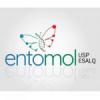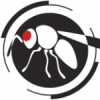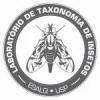Laboratories

The major goal of Arthropod Resistance Laboratory is to conduct research on detection, monitoring and management of pest resistance to control tactics, mainly in soybean, cotton and maize crops. Focus on resistance risk assessment and management of pest resistance to insecticides and genetically modified crops expressing Bt proteins in Brazil.
E-mail: leqci.esalq@usp.br
Phone: +55 (19) 3447.8888
Other professors:
Support staff: Arodi Prado

The laboratory is capable of obtaining, isolation, identification and use of chemical compounds from studies involving inter- and intraspecific interactions of insects, plants and microorganisms in the environment.
E-mail: ascorrea@usp.br
Phone: +55 (19) 3447.8866
Other professors:
Support staff:

Phone: +55 (19) 3429-4367
Other professors:
Support staff: Vitor Celso da Silva
Phone: +55 (19) 3429.4133
Other professors:
Support staff: Josenilton Luis Mandro

Taxonomy of mites of agricultural importance, envisioning the use of predators in biological control programs. Development of technology for the use of predatory mites in pest control.
Phone: +55 (19) 3447.8878
Other professors:
Support staff: Neide Graciano Zério

Phone: + 55 (19) 3447.8883
Other professors:
Support staff: Marcele de Almeida Coelho


Arthropod transmission of plant pathogens. Ecological, behavioral and molecular studies on vector-plant-pathogen interactions involved in the spread of phytopathogenic bacteria and viruses. The goal is to improve our understanding of pathosystems for effective control of crop diseases.
Phone: +55 (19) 3447.8861
Other professors:
Support staff: Solange Aparecida Vieira Barros

The Laboratory of Pathology and Microbial Control develops research, teaching and extension activities that are related to sanitary problems in insect breeding and the biological control of insects and mites pest. Emphasis has been given on the development of biopesticides based on entomopathogenic fungi, ecology and environmental monitoring of entomopathogenic fungi in agroecosystems. The laboratory has a collection of Entomopathogenic Microorganisms "Prof. Sérgio Batista Alves" registered as genetic patrimony in the Ministry of the Environment. The Prof. Dr. Italo Delalibera Jr.
Phone: +55 (19) 3447.8869
Other professors: Sinval Silveira Neto
Support staff:

Taxonomy of Insects of Agricultural Importance, with emphasis on fruit flies of the genus Anastrepha (Diptera, Tephritidae) and egg parasitoids of he genus Trichogramma (Hymenoptera, Trichogrammatidae).




